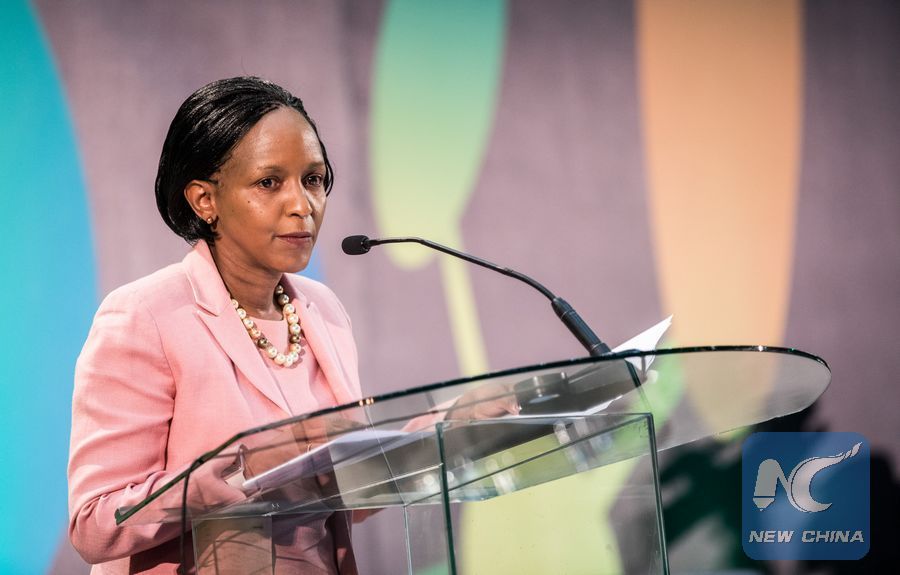
Acting Executive Director of the United Nations Environmental Programme (UNEP) Joyce Msuya addressing the opening ceremony of the UN Science-Policy-Business Forum on the Environment in Nairobi, Kenya, March 9, 2019. (Xinhua/Zhang Yu)
NAIROBI, March 14 (Xinhua) -- The UN Environment Programme (UNEP) on Wednesday appealed for concerted efforts to transform food, energy and waste systems in order to boost the world's sustainability agenda.
Joyce Msuya, the acting executive director of UNEP said that as the global population grows and climate pressures increase, the world needs to start producing food with greater efficiency and resilience and people are encouraged to adopt diets that are more sustainable.
"We need to stop the loss and waste of food across the value chains. And we need to encourage and empower people everywhere to adopt healthier and more sustainable diets. In many cases, that means eating less meat," Msuya remarked at the UN Environment Assembly underway in Nairobi.
She said that farmers need strong incentives to reduce their greenhouse gas emissions and use water and land as efficiently as possible.
Msuya noted that renewable energy production has grown significantly over the past decade, although an estimated two thirds of electricity came from fossil fuels.
"The amount of electricity generated globally has more than doubled since 1990, but nearly one billion people still don't have electricity at home. Our goal should be to completely decarbonize our energy supply. We need to break the link between energy use, and the greenhouse gas emissions, and air pollution generated by it," said Msuya.
She called for formulation of regulations, policies alongside adoption of innovations that push people towards cleaner sources of energy and increase efficiency and reduce loss.
"We also need to completely change the way we think about waste," she said, noting that humanity used 90 billion tons of resources in 2017, more than 50 percent of which was dispersed or emitted as waste, while less than 10 percent was put back into the economy.
She said that while there is good progress against hunger and there are many positive examples of sustainable approaches to economic growth, the planet is still is suffering.
She said that the sixth edition of Global Environmental Outlook (GEO6) that was launched on Wednesday on the sidelines of the UN Environment Assembly calls for a paradigm shift to boost health of the planet.
"The GEO6 offers more than just a health check. It also provides a comprehensive treatment plan, a set of actions that can put us firmly on the path to a sustainable future, as set out in the UN's 2030 Agenda," said Msuya.

